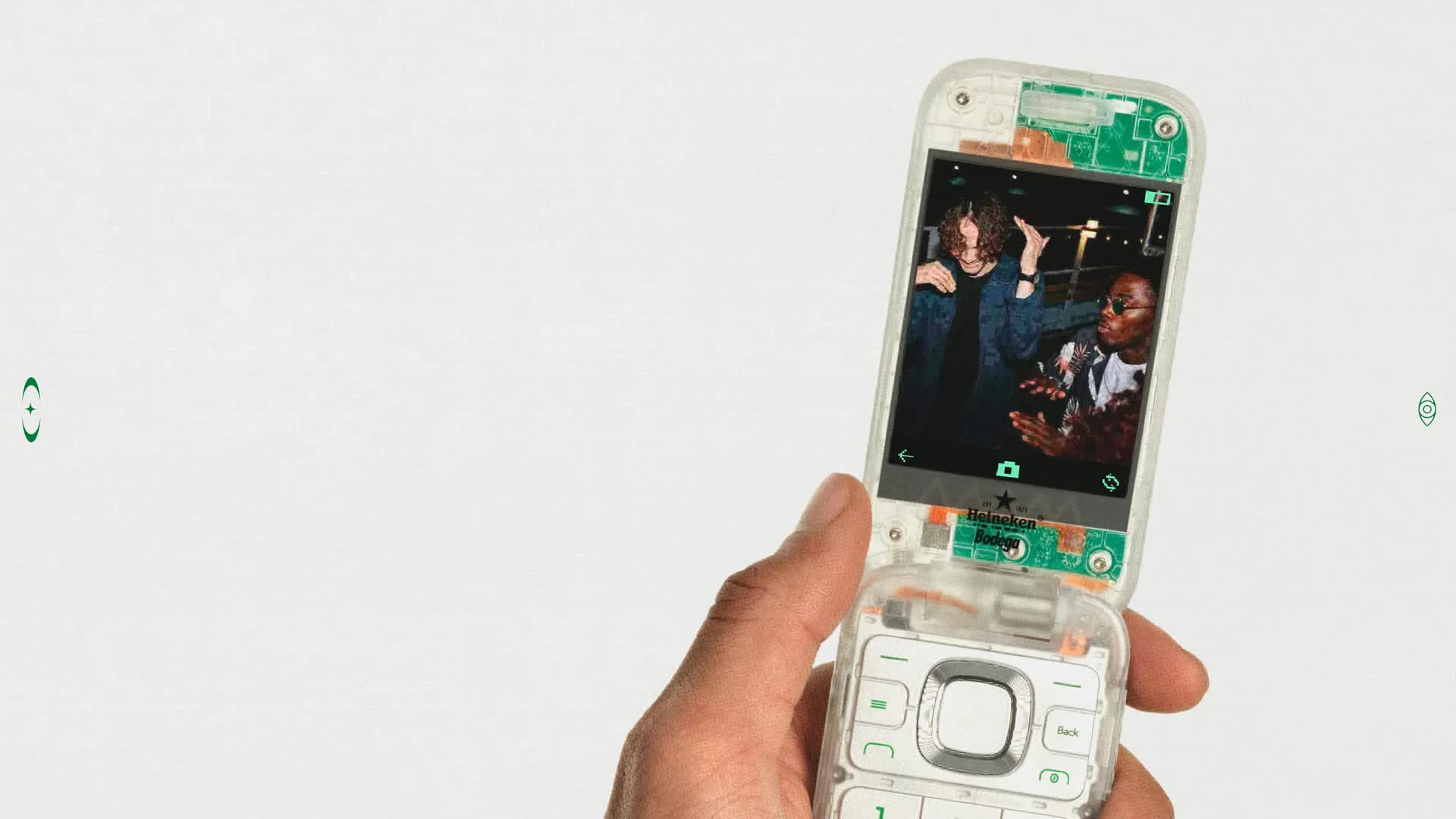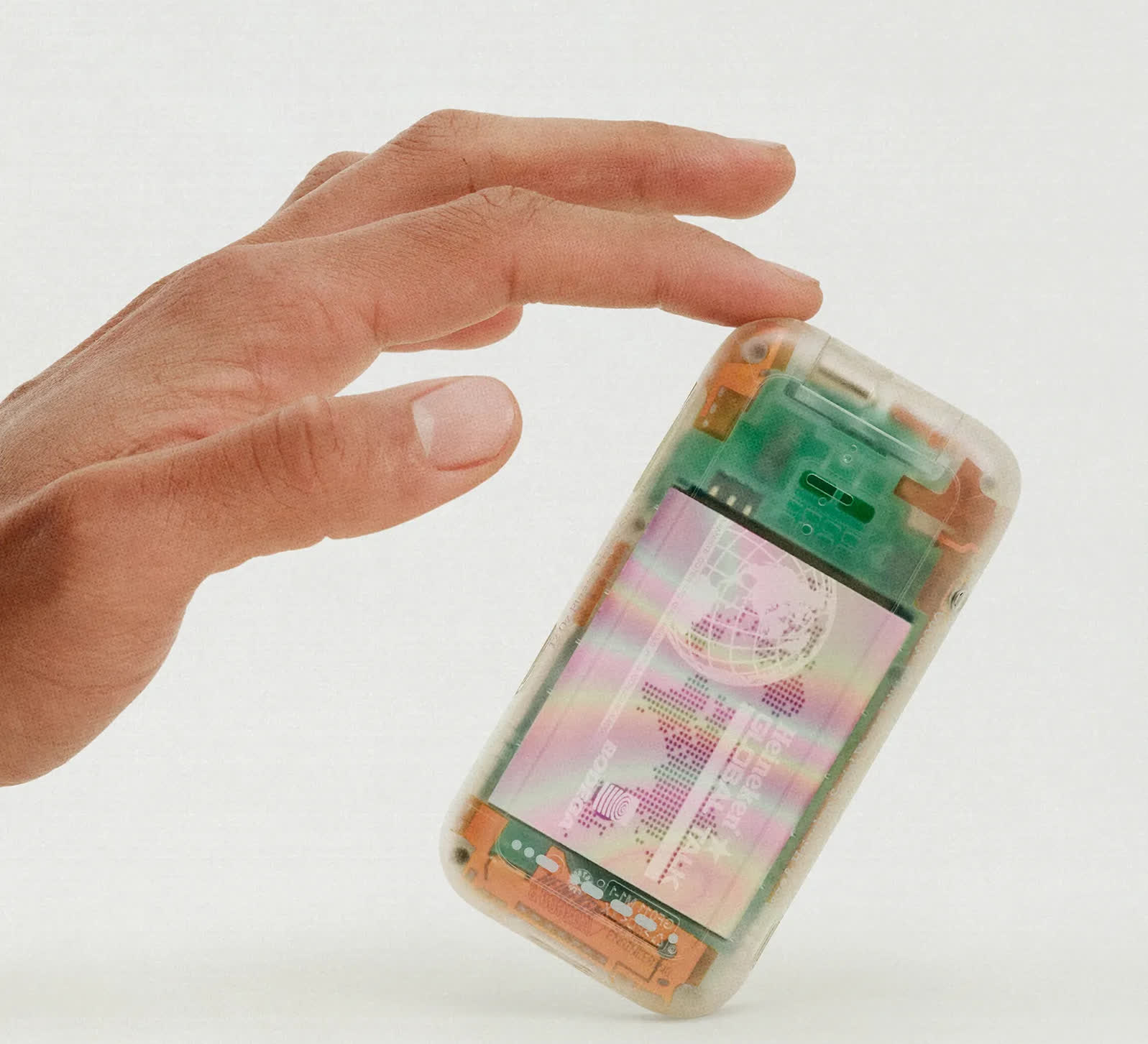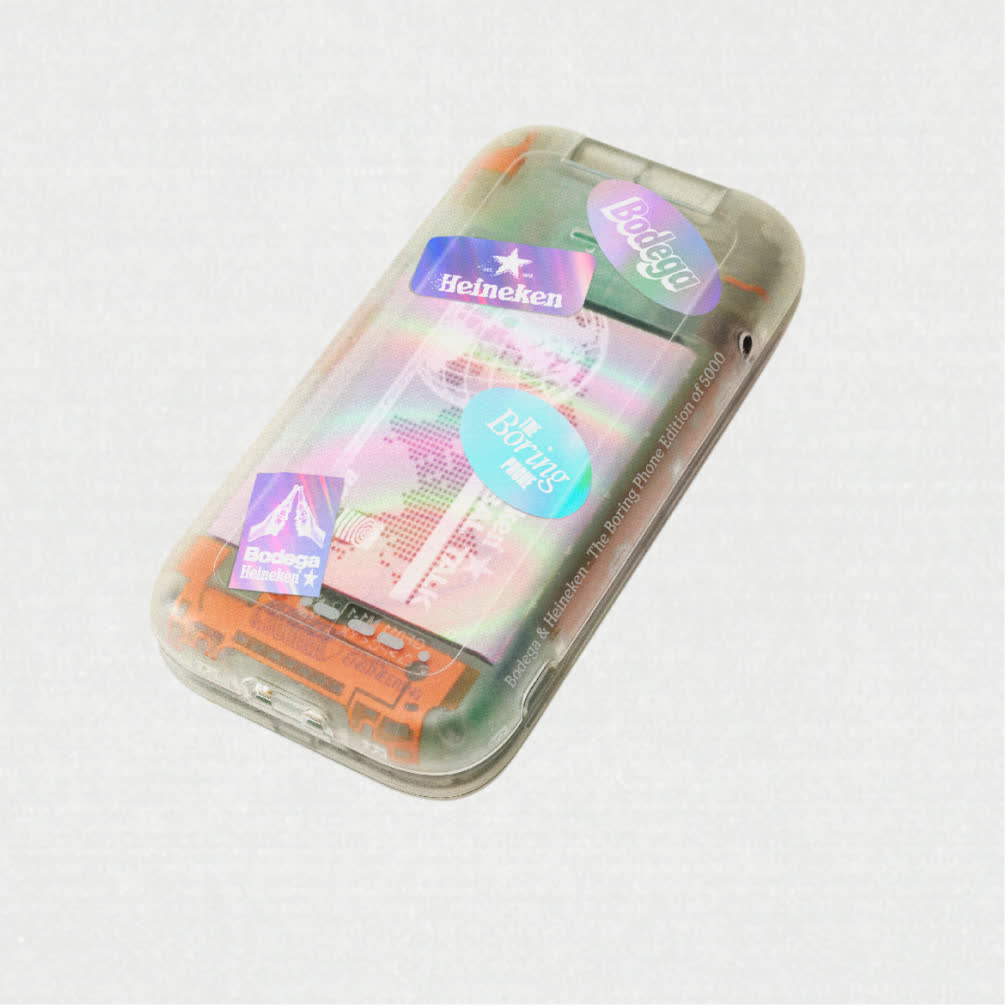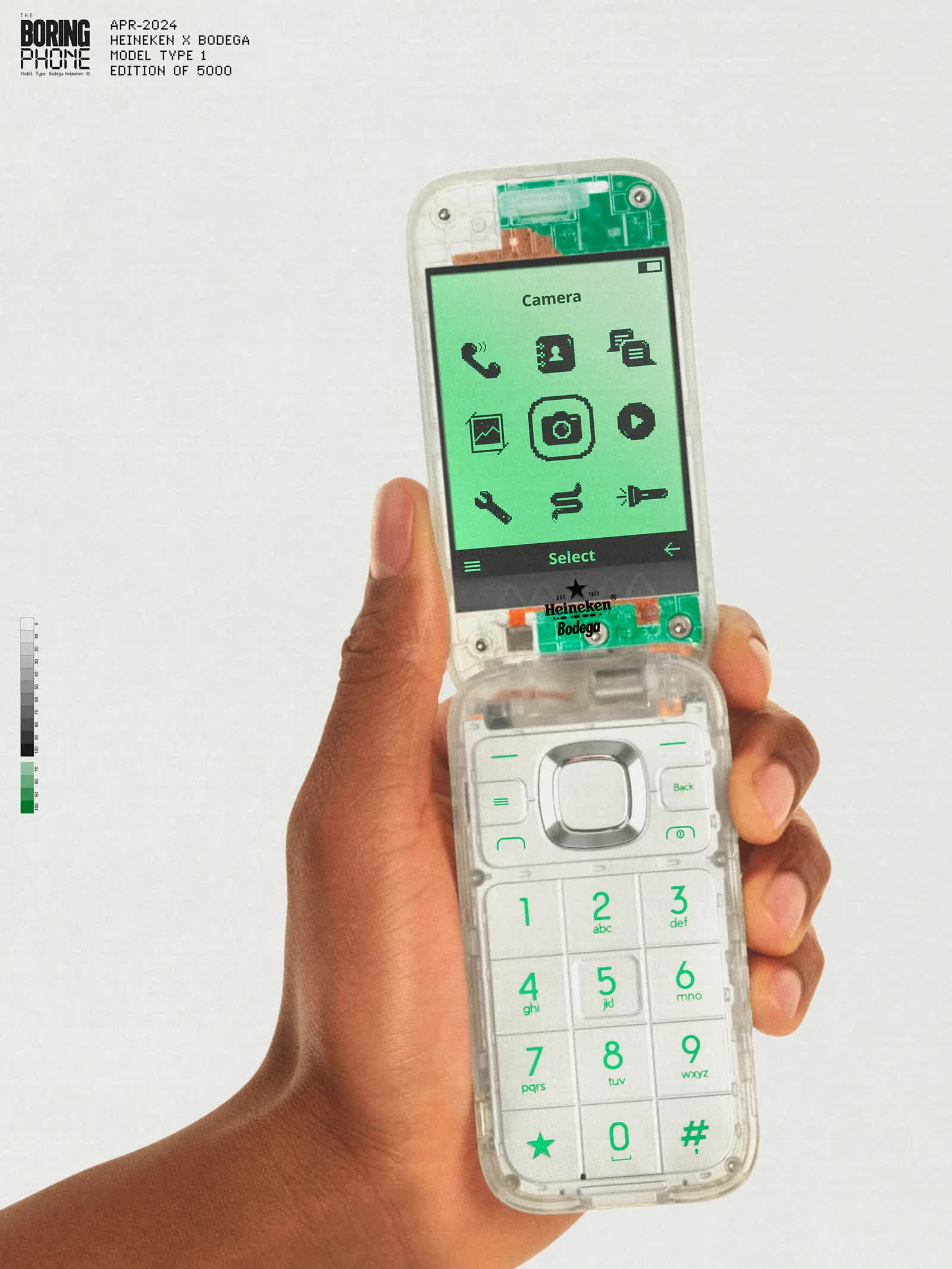In brief: Most companies wouldn’t want their products to be known as boring, but HMD Global, which manufactures Nokia-branded phones, has teamed up with Heineken on a retro-style device that really is called the Boring Phone. Like other feature or dumb phones, it has no apps, web browsers, or anything else we take for granted in modern handsets.
In addition to Heineken Beer, HMD partnered with Boston-based streetwear brand Bodega on the Boring Phone. Why would anyone want a phone that proudly defines itself as boring? HMD says that modern smartphones are far too interesting for social life, which is why you need a boring one.
The flip-style handset is as basic as other feature phones. It comes with a 2.8-inch QVGA display on the inside and a 1.77-inch QQVGA external display. The single, 0.3-megapixel camera probably shouldn’t be used to capture precious moments, but you do get a 3.5mm headphone jack, a Micro USB, and FM radio. As this is a phone that pays homage to the handsets of the late 1990s/early 2000s, you can play Snake on it.
What the Boring Phone does offer is calls and texts via 2G, 3G, and 4G networks. It also has a week of standby time and up to 20 hours of talk time, so unlike today’s smartphones, you won’t be charging it every night.
One thing that sets the Boring Phone apart from similar devices is the design. It’s transparent, much like the Nothing phones, sports the Heineken and Bodega logos, and comes with some holographic stickers. It might be functionally boring, but it does look pretty cool.
In a move that could make the Boring Phone more desirable, it won’t be available to buy. Only 5,000 are being produced, which the company will be handing out globally through social media giveaways, competitions, and consumer engagement events, starting with Milan Design Week on April 18.
HMD is one of the world’s top feature phone manufacturers. It released the Nokia 130 and Nokia 150 last year – phones with removable batteries. It’s also making a Barbie flip phone that will be available to buy.
Most feature phone sales come from developing nations, the Middle East, India, and Africa, where they’re popular for their low prices. But they are becoming more popular in the US thanks to Gen Z users looking to limit their screen time and improve their mental health. The alleged damage caused to young people by social media apps has led to hundreds of lawsuits against the companies, though it appears Meta boss Mark Zuckerberg won’t be held personally liable.





